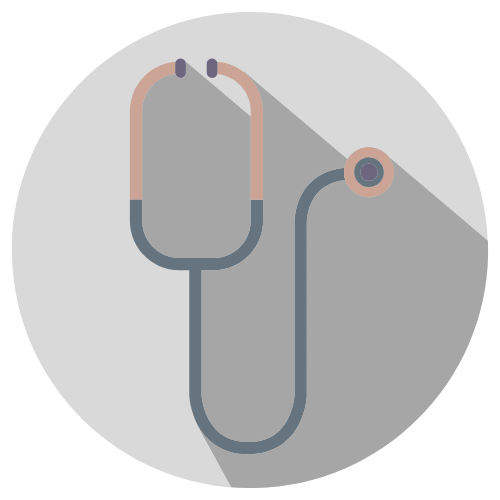Why MedHumChat?
Colleen Farrell, MD
Medical internship is notoriously taxing. The long hours and exhausting work have a way of sucking energy from every other part of life. The violin I had played throughout college and medical school was relegated to a closet. Nieces’ and nephews’ birthdays slipped my mind. I ate my Thanksgiving turkey and mashed potatoes off of a disposable plate in a hospital conference room.
A reprieve came during the spring of my internship. For a few weeks, my residency gave me and my fellow interns the opportunity to create our own curriculum in psychosocial medicine. On the days we weren’t seeing patients in clinic, we took a step back from interpreting lab values and writing prescriptions to deepen our understanding of the human side of medicine. It was a chance to reconnect with the values that brought us to medicine in the first place.
My contribution to our shared curriculum was poetry. Reading literature and poetry was another part of my life that had withered during my internship. Without it, my world had less color.
“Reading literature and poetry was another part of my life that had withered during my internship. Without it, my world had less color.”
I made photocopies of a poem by physician-poet Rafael Campo, “The Common Mental Health Disorders of Immigrants,” from his aptly named collection Alternative Medicine. I chose this poem as a complement to a session we had on the clinical management of depression.
II. Depression
She smokes, as if she could inhale it all
and make it vanish: all the poisonous
miasmas, all the mysterious dreams,
the tears my grandfather shed, where she hid
while soldiers smashed the grand piano, black
as a deep lake, to pieces.
—excerpt from “The Common Mental Health Disorders of Immigrants” by Rafael Campo
Though my co-interns were not self-proclaimed poetry lovers, the richness of their insights astounded me. The poem couldn’t tell us about our own patients’ lives, but I believe it expanded our empathic imaginations. Rather than dry clinical language, the poem gave us stories. It showed us the importance of seeking to understand our patients’ lived experiences.
I left our impromptu poetry seminar feeling an important part of myself rekindled. I wasn’t okay with losing it again. I wanted more—more poems, more discussions, more points of connection.
“Rather than dry clinical language, the poem gave us stories. It showed us the importance of seeking to understand our patients’ lived experiences.”
Unfortunately, the demands of residency made it impossible for me to pull off a sustained, in-person medical humanities seminar series. That’s where Twitter came in: a free, online forum that I could access from anywhere.
From the beginning, my intention with MedHumChat has been to bring the reflection and connection of that in-person poetry seminar to a public, online forum. While many benefits of face-to-face connection are lost on Twitter, I quickly discovered the bountiful advantages.
The greatest asset of Twitter is the breakdown of traditional hierarchies and divisions in medicine. Participants span the medical training spectrum, from pre-med to full professor. They span specialties, from psychiatry and palliative care to surgery and cardiology. We’ve been joined by diverse health professionals, including physician assistants, nurses, occupational therapists, pharmacists, and bioethicists. Perhaps most special of all, many participants’ primary mode of contact with healthcare is as patients and/or patient advocates.
This diversity of perspectives, on a platform where no one person can hog the microphone, creates a remarkable and unprecedented opportunity to learn from each other. I’d argue, it’s how healthcare conversations should be.
In online culture, in-person interactions are often described as in real life (abbreviated IRL). I’ve never liked that term because it seems to imply that our online interactions are artificial. And that hasn’t been my experience at all.
“This diversity of perspectives, on a platform where no one person can hog the microphone, creates a remarkable and unprecedented opportunity to learn from each other. I’d argue, it’s how healthcare conversations should be.”
Through Twitter, MedHumChat has become a community. I’ve connected with people at my own institution I otherwise wouldn’t have met as well as people from around the globe. The poems, stories and essays we read and the profoundly insightful comments of our participants have made me a better doctor.
With the launch of our website, MedHumChat is growing into a new phase. Our aim is for this new platform to serve as a hub for anyone trying to foster the medical humanities in their lives or work. Our discussion guides can be used for formal medical humanities education, informal chats, or individual reflection. Our From the Shelf series offers reading recommendations curated by leaders in medical humanities. Our MedHumPost blog features a smattering of insights from our community. And of course, you’ll find information on how to join us for a live Twitter chat.
Colleen Farrell, MD is an internal medicine resident physician at NYU-Bellevue and the founder and director of MedHumChat.


